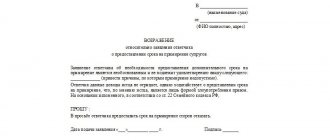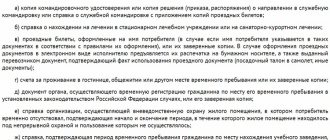The concept of imprisonment. Signs
The content of the concept of “deprivation of liberty” is disclosed in Part 1 of Art. 56 of the Criminal Code of the Russian Federation, which states that deprivation of liberty consists of isolating a convicted person from society by sending him to a penal colony or placement in an educational colony, a medical correctional institution, a correctional colony of general, strict or special regime, or to prison.
Thus, deprivation of liberty consists of isolating the convicted person from society, which is ensured by special institutions that carry out the punishment of imprisonment. The difference between different types of institutions is determined, first of all, by the degree of isolation of the convicted person from society that is ensured in them. In this regard, we can talk about the regime of serving the sentence.
Imprisonment is the most severe criminal punishment (with the exception of the death penalty), since its serving is associated with the greatest amount of legal restrictions imposed on the convicted person.
First of all, this concerns the constitutional rights to freedom and personal integrity, to privacy, to the privacy of correspondence, telephone conversations, postal, telegraph and other messages, to the inviolability of home, freedom of movement, etc.
Deprivation of liberty is characterized by the following features:
- forced isolation of convicted persons from society for a period determined by a court verdict ( from 2 months to 20 years );
- placement of convicts in appropriate correctional institutions with various regimes of detention.
In the case of full or partial addition of terms of imprisonment when imposing punishment for an aggregate of crimes, the maximum term of imprisonment cannot exceed twenty-five years, and for an aggregate of sentences - no more than thirty years.
Commentary to Art. 56 of the Criminal Code of the Russian Federation
The current criminal legislation knows two types of basic punishments, the content of which is imprisonment: imprisonment for a certain period and life imprisonment.
The content of the concept of “deprivation of liberty” is disclosed in Part 1 of Art. 56 of the Criminal Code of the Russian Federation, which states that deprivation of liberty consists of isolating a convicted person from society by sending him to a penal colony or placement in an educational colony, a medical correctional institution, a correctional colony of general, strict or special regime, or to prison.
Thus, deprivation of liberty consists of isolating the convicted person from society, which is ensured by special institutions that carry out the punishment of imprisonment. The difference between different types of institutions is determined primarily by the degree of isolation of the convict from society that is ensured in them. In this regard, we can talk about the regime of serving the sentence.
Imprisonment is the most severe criminal punishment (with the exception of the death penalty), since its serving is associated with the greatest amount of legal restrictions imposed on the convicted person.
First of all, this concerns the constitutional rights to freedom and personal integrity, to privacy, to the privacy of correspondence, telephone conversations, postal, telegraph and other messages, to the inviolability of home, freedom of movement, etc. As noted, the range of rights that are deprived of or limited by those sentenced to imprisonment is very wide, but is determined by the content of the punishment and the mode of serving it.
When considering the issue of imposing criminal punishment, the Plenum of the Supreme Court of the Russian Federation in Resolution No. 2 of January 11, 2007 “On the practice of imposing criminal punishment by the courts of the Russian Federation” draws attention to the need to comply with the requirements of the law on a strictly individual approach to imposing punishment, bearing in mind, that fair punishment contributes to solving the problems and achieving the goals specified in Art. Art. 2 and 43 of the Criminal Code of the Russian Federation.
In accordance with the general principles of sentencing (Article 60 of the Criminal Code of the Russian Federation), a more severe type of punishment from among those provided for the crime committed should be assigned only if a less severe type of punishment cannot ensure the achievement of the goals of punishment.
If the sanctions of the criminal law, along with deprivation of liberty, provide for other types of punishment, the court’s decision to impose imprisonment must be motivated in the sentence.
———————————
Bulletin of the Supreme Court of the Russian Federation. 2007. N 4.
In this regard, it can be said that punishment in the form of imprisonment, taking into account its severity, is the most undesirable, but necessary measure of state coercion. That is why it is represented in more than eighty percent of the sanctions in the articles of the Special Part of the Criminal Code of the Russian Federation.
The minimum term of imprisonment in accordance with the law is two months (including in cases where a sentence is imposed below the lower limit in accordance with Article 64 of the Criminal Code of the Russian Federation), and the maximum is twenty years.
An exception to this general rule is provided for minors. In accordance with Part 6 of Art. 88 of the Criminal Code of the Russian Federation, punishment in the form of imprisonment is imposed on convicted minors who committed crimes under the age of sixteen for a period of not more than six years. The same category of minors who have committed especially serious crimes, as well as other convicted minors, are sentenced to a term of not more than ten years. Punishment in the form of imprisonment cannot be imposed at all on a convicted minor who committed a crime of minor or moderate gravity for the first time at the age of sixteen, as well as on other juvenile convicts who committed crimes of minor gravity for the first time. A person who has committed one or more crimes, for none of which he was previously convicted, or when the previous sentence against him has not entered into legal force, should be considered to have committed a crime of minor or medium gravity for the first time.
In this regard, in practice, difficulties arise when assigning punishment in cases where, in accordance with Part 6 of Art. 88 of the Criminal Code of the Russian Federation, it is impossible to impose a sentence of imprisonment on a convicted minor, and the sanction of the article of the Special Part of the Criminal Code of the Russian Federation does not provide for another type of punishment (for example, the sanction of Part 2 of Article 112 of the Criminal Code of the Russian Federation “Intentional infliction of moderate harm to health” provides for only one punishment - imprisonment for up to five years). This problem is not regulated by law. Therefore, in practice, courts prescribe in such situations a punishment that is more lenient than that provided for this crime (Article 64 of the Criminal Code of the Russian Federation). In some cases, the provisions of Art. 73 of the Criminal Code of the Russian Federation - suspended sentence. But the latter practice should be recognized as clearly contrary to the law, since Part 6 of Art. 88 of the Criminal Code of the Russian Federation in the cases specified therein generally prohibits the imposition of punishment in the form of imprisonment.
In the case of full or partial addition of terms of imprisonment when imposing punishment for an aggregate of crimes, the maximum term of imprisonment cannot exceed twenty-five years, and for an aggregate of sentences - no more than thirty years.
For minors, the maximum sentence, including when imposed for a combination of crimes or sentences, cannot exceed ten years.
Imprisonment for a certain period can be applied as a replacement when pardoning those sentenced to life imprisonment (the term is not limited), as well as to the death penalty (Part 3 of Article 59 of the Criminal Code of the Russian Federation) for a period of twenty-five years. Imprisonment can also be applied to replace a more lenient punishment with a more severe one in the event of a person’s malicious evasion from serving a sentence (for example, replacing correctional labor with imprisonment - Part 4 of Article 50 of the Criminal Code of the Russian Federation, restriction of freedom - Part 4 of Article 53 of the Criminal Code RF).
Imprisonment for a certain period of time is served in correctional institutions, which include educational colonies, correctional colonies, prisons and medical correctional institutions (for patients with open tuberculosis, alcoholism or drug addiction). The functions of correctional institutions are also performed by treatment and preventive institutions (hospitals) in relation to sick convicts held there, as well as pre-trial detention centers in relation to convicts left to perform household maintenance work, and convicts sentenced for a term of not more than six months left in pre-trial detention centers with their consent.
Types of correctional institutions
The assignment of a type of correctional institution to those sentenced to imprisonment is carried out according to the rules of Article 58 of the Criminal Code of the Russian Federation.
In accordance with Art. 74 of the Penal Code of the Russian Federation, correctional institutions are:
- correctional colonies;
- educational colonies (Articles 132 - 142 of the Penal Code of the Russian Federation);
- prisons (Articles 130, 131 of the Penal Code of the Russian Federation);
- medical correctional institutions (Article 101 of the Penal Code of the Russian Federation).
“... Although the number of institutions executing punishment in the form of imprisonment includes medical correctional institutions (part 9 of article 16 of the Penal Code of the Russian Federation), in which, in accordance with part 8 of Article 74 of the Penal Code of the Russian Federation, persons with open forms of tuberculosis, alcoholism and drug addiction are serving their sentences , when such persons are sentenced to imprisonment, they must be assigned a type of correctional institution in accordance with Article 58 of the Criminal Code of the Russian Federation. Treatment of these convicts is organized in the manner established by the penal legislation, the administration of the correctional institution in which they are serving their sentences" (clause 16 of the Resolution of the Plenum of the Supreme Court of the Russian Federation of May 29, 2014 N 9 "On the practice of appointing and changing types of correctional institutions by courts") .
Correctional colonies are intended for convicts who have reached the age of majority to serve imprisonment.
Correctional colonies are divided into:
- colony-settlements (Articles 128, 129 of the Penal Code of the Russian Federation);
- general regime correctional colonies (Articles 120, 121 of the Penal Code of the Russian Federation);
- strict regime correctional colonies (Articles 122, 123 of the Penal Code of the Russian Federation);
- special regime correctional colonies (Articles 124 - 127 of the Penal Code of the Russian Federation).
According to Part 1 of Art. 74 of the Penal Code of the Russian Federation, the functions of correctional institutions are also performed by pre-trial detention centers in relation to prisoners left to perform household maintenance work, and in relation to prisoners sentenced for a term of not more than six months, left in pre-trial detention centers with their consent.
The type of correctional colony (settlement colony, general, strict, special regime colony) depends on the gender of the convicted person, the form of guilt of the crime committed, its category, the presence or absence of recidivism, its type, as well as whether the person has previously served imprisonment (Resolution of the Plenum Supreme Court of the Russian Federation dated May 29, 2014 N 9 “On the practice of appointing and changing types of correctional institutions by courts”).
Imposing a sentence of imprisonment on minors
In accordance with Part 6 of Art. 88 of the Criminal Code of the Russian Federation, punishment in the form of imprisonment is imposed on convicted minors who committed crimes under the age of sixteen for a period of not more than six years. For the same category of minors who have committed especially serious crimes, as well as for other convicted minors, punishment is imposed for a period of not more than ten years (including when assigned based on a combination of crimes or sentences).
Punishment in the form of imprisonment cannot be imposed at all on a convicted minor who committed a crime of minor or moderate gravity for the first time at the age of sixteen, as well as on other juvenile convicts who committed crimes of minor gravity for the first time.
Criminal punishment - life imprisonment
01/24/2017 This type of punishment as life imprisonment is provided for in Article 57 of the Criminal Code of the Russian Federation. Initially, life imprisonment was provided as an alternative to the death penalty and could only be imposed for especially serious crimes that encroached on life. Subsequently, after the announcement of a moratorium on the use of the death penalty and in order to strengthen the fight against terrorism, Federal Law No. 74-FZ of July 21, 2004 removed such an indication from Article 57 of the Criminal Code of the Russian Federation, and the possibility of establishing life imprisonment extended to particularly serious crimes against public safety. Also, the specified Law provides for this type of punishment for committing a terrorist act under aggravating circumstances (Part 3 of Article 205 of the Criminal Code of the Russian Federation), and since December 2008 - in the case of hostage taking or sabotage under aggravating circumstances (Part 4 of Article 206, Part 3 Article 281 of the Criminal Code of the Russian Federation). From 02/29/2012, in accordance with Federal Law No. 14-FZ, Article 57 of the Criminal Code of the Russian Federation was supplemented with an indication of the possibility of establishing life imprisonment for crimes against the sexual integrity of minors under 14 years of age (Part 5 of Article 131, Part 5 of Article 132 , part 6 of article 134 of the Criminal Code of the Russian Federation). In accordance with Federal Law No. 18-FZ dated 01.03.2012, this type of criminal punishment is also extended for the commission of particularly serious crimes against public health and public morality (as sanctioned by Part 5 of Article 228.1 of the Criminal Code of the Russian Federation, from 01.01.2013, and Part. 4 Article 229.1 of the Criminal Code of the Russian Federation). The newly adopted resolution of the Plenum of the Supreme Court of the Russian Federation dated November 29, 2016 “On the Judicial Sentence” provides an explanation according to which the courts must take into account that such a type of punishment as life imprisonment in cases provided for by law can only be applied when the need for its appointment is due to exceptional danger for the society of the person who committed the crime. The court, motivating the imposition of a sentence of life imprisonment in the verdict, must provide specific circumstances of the case and data characterizing the personality of the defendant in support of this conclusion. It should be noted that the previously available clarifications in the resolution of the Plenum of the Supreme Court dated April 29, 1996 No. 1 “On the Judicial Sentence” also ordered the courts to impose life imprisonment in cases provided for by law only when the need for its appointment is due to special aggravating circumstances and exceptional danger to society of the person who committed the crime. Thus, at the legislative level, particularly serious crimes that pose an increased public danger are clearly defined, for which the courts can impose the most severe of all types of punishments that exist and are actually applied today in modern criminal law - in the form of life imprisonment. Date modified: 02/07/2017 18:32:35 Number of impressions: 528
Return to list










